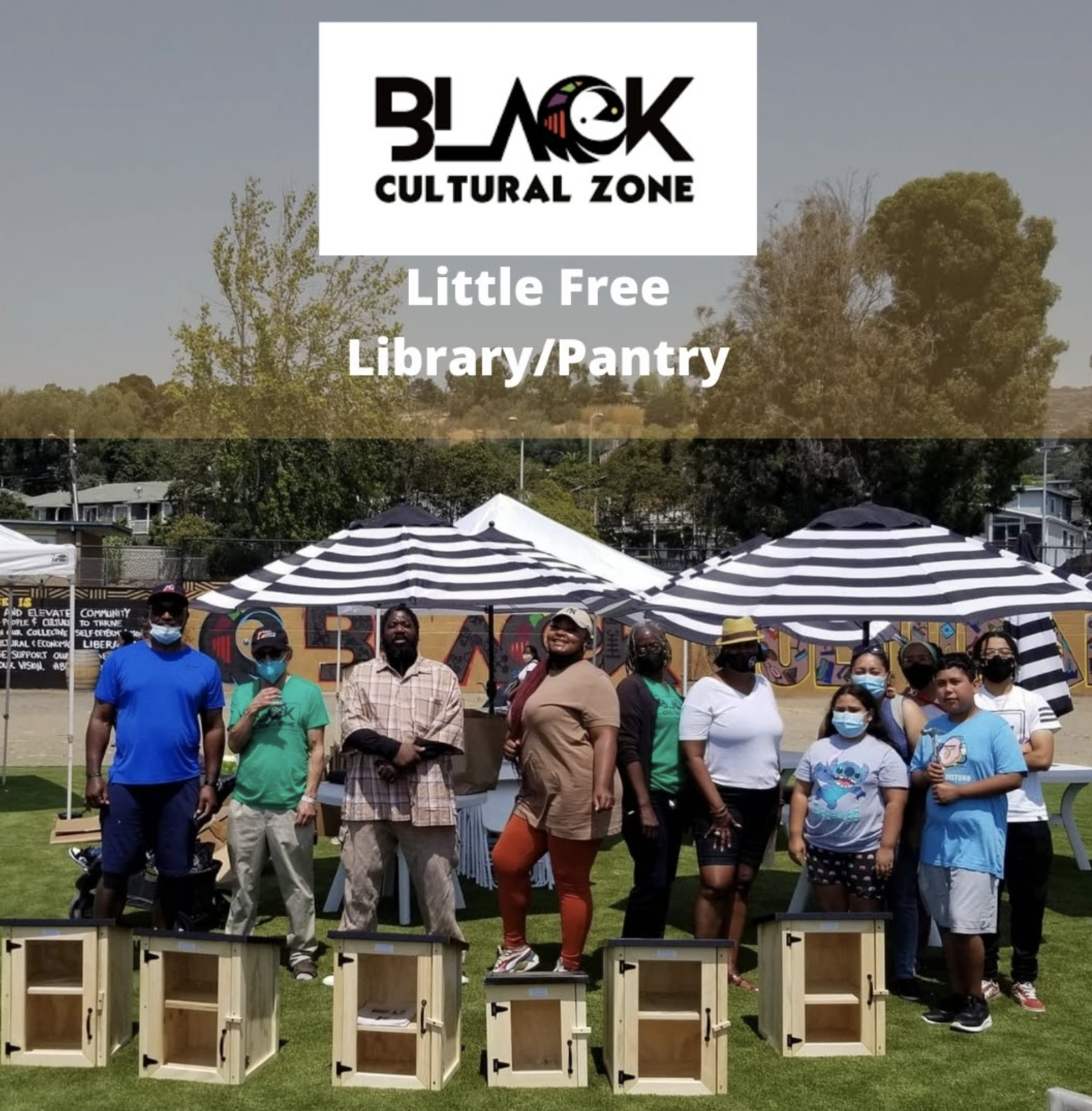Neighborhood Messengers: A Model of Connection in East Oakland
The Takeaway
The East Oakland Black Cultural Zone Community Development Corporation (BCZ CDC) activated a network of almost 200 Neighborhood Messengers to serve as trusted conduits for COVID-19 health and safety information in East Oakland communities throughout the pandemic. Now their model is being replicated across the city and expanding to include neighborhood revitalization, community health work and workforce development.
The Challenge
The BCZ CDC has worked to keep Black folks in East Oakland, fighting displacement and disempowerment through economic development, strengthening culture, and directing more dollars to community-driven projects. The grassroots organization is committed to transforming the area, bringing together dozens of nonprofit organizations, businesses, arts and culture groups, and churches to uplift and unify the community from within.
So when the COVID-19 pandemic shut down California and it became clear that Black communities were and would continue to be severely impacted, the BCZ CDC team knew the solutions would have to come from the community.
There were certainly some big issues to tackle: food insecurity in what was already a food desert, widespread loss of jobs and income, a lack of PPE (personal protective equipment), and critically, the need to prevent the spread of COVID-19 by keeping folks informed and safe. But they also knew East Oakland’s strength.
“Though it is probably the most disinvested part of Oakland with some of the roughest outcomes, it’s also a place where people talk to each other. We know our neighbors,” said Nehanda Imara, Community Development Coordinator of the East Oakland Black Cultural Zone CDC.
An Innovative Approach
The well-known “promotores” or “community health workers” model, where people are trained and sent out as public health ambassadors in their communities, seemed like a good fit to address all of these challenges. But BCZ CDC wanted to take it a step further. They wanted to make sure they could reach every person on every single block, so that no one was left behind.
So the organization put the call out all over East Oakland, the BCZ CDC began recruiting Messengers early Spring 2021 and soon had an organized group of 135 Neighborhood Messengers who distributed fresh food, PPE, and timely COVID-19 information about testing and vaccinations to 120,000 individuals.
“It’s almost like Jehovah’s Witnesses, that’s good organizing right there - they come to your door every other week to try to talk to you and leave information until you can’t ignore them,” Nehanda joked. “But because our Neighborhood Messengers live on their block, they already know their neighbors and can build a relationship of trust with folks where they were.”
As the messengers spent time talking with families on their blocks, the program kept evolving to meet the community’s needs. What started as a network for information grew into a network for transforming neighborhoods from the ground up. For example, several areas were used as dumping grounds for industrial and residential waste, and the scant cleanup services previously operating were non-existent during the pandemic. This led to an emphasis on neighborhood beautification projects, from building Little Libraries to creating community garden boxes to teach folks how to grow their own vegetables.
Lasting Impact
From the inception of the Neighborhood Messengers program, BCZ CDC staff had a longer-term vision of building a strong, connected infrastructure for future resilience, as well as a pipeline of workers who were embedded in the community.
They made sure to provide the diverse group of messengers with professional development and transferable skills for future employment, via the bi-weekly training sessions on everything from design principles to cultural humility. As the project winds down, several of the messengers will continue on as employees with BCZ CDC as the organization sets its sights on bigger projects. And thanks to a partnership with local clinics, including the Roots Community Health Clinic and Umoja Health, some messengers will be trained to become health workers who can go into homes to provide basic check-ups and education.
BCZ’s success has also drawn important attention and supporters. Their model helped inform Alameda County Department of Public Health’s Direct Outreach to Our Residents program (DOOR), linking residents to resources via door-to-door education by trusted messengers. And the City of Oakland is looking to use the model for a new Neighborhood Safety initiative. These requests just validate what Nehanda and her team already knew: “There’s a need for this kind of collective infrastructure for our communities, before, now, and for the future.”




